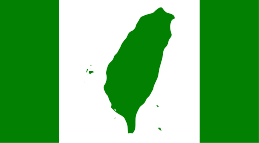
Back حركة استقلال تايوان Arabic Independentismu taiwanés AST Dài-uăng dŭk-lĭk ông-dông CDO Independentismo taiwanés Spanish جنبش استقلال تایوان Persian Taiwanin itsenäisyysliike Finnish Indépendance de Taïwan French Independentismo taiwanés Galician Thòi-vân thu̍k-li̍p yun-thung HAK ताइवान की स्वतंत्रता का आन्दोलन Hindi
This article has multiple issues. Please help improve it or discuss these issues on the talk page. (Learn how and when to remove these template messages)
|
| Taiwan independence movement | |||||||||||||||||||||||||||||
|---|---|---|---|---|---|---|---|---|---|---|---|---|---|---|---|---|---|---|---|---|---|---|---|---|---|---|---|---|---|
| Traditional Chinese | 臺灣獨立運動 or 台灣獨立運動 | ||||||||||||||||||||||||||||
| Simplified Chinese | 台湾独立运动 | ||||||||||||||||||||||||||||
| |||||||||||||||||||||||||||||
| Abbreviation | |||||||||||||||||||||||||||||
| Traditional Chinese | 臺獨 or 台獨 | ||||||||||||||||||||||||||||
| Simplified Chinese | 台独 | ||||||||||||||||||||||||||||
| |||||||||||||||||||||||||||||
| Part of a series on |
| Taiwan independence movement |
|---|
 |
|
|
 |
|---|
|
|
The Taiwan independence movement is a political movement which advocates the formal declaration of an independent and sovereign Taiwanese state, as opposed to Chinese unification or the status quo in Cross-Strait relations.
Into the 21st-century, Taiwan's political status is ambiguous. China claims it is a province of the People's Republic of China (PRC), whereas the Tsai Ing-wen administration of Taiwan maintains that Taiwan is already an independent country as the Republic of China (ROC) and thus does not have to push for any sort of formal independence.[1] As such, the ROC consisting of Taiwan and other islands under its control already conducts official diplomatic relations with and is recognized by 12 member states of the United Nations and the Holy See.[2]
The use of "independence" for Taiwan can be ambiguous. If some supporters articulate that they agree to the independence of Taiwan, they may either be referring to the notion of formally creating an independent Taiwanese state or to the notion that Taiwan has become synonymous with the current Republic of China and is already independent (as reflected in the concept of One Country on Each Side). Some supporters advocate the exclusion of Kinmen and Matsu, which are controlled by Taiwan but are located off the coast of mainland China.[3] Taiwan independence is supported by the Pan-Green Coalition in Taiwan but opposed by the Pan-Blue Coalition, which seeks to retain the somewhat ambiguous status quo of the Republic of China (Taiwan) under the so-called "1992 Consensus" or gradually "reunify" with mainland China at some point.
The governments of the People's Republic of China (PRC) and the Republic of China (ROC) oppose Taiwanese independence since they believe that Taiwan and mainland China comprise two portions of a single country's territory. For the ROC, such a move would be considered a violation of its constitution. The process for a constitutional amendment or national territory alternation must be initiated by one-fourth (25%) of the members of the Legislative Yuan (the unicameral parliament of Taiwan), then voted in the Legislative Yuan with at least three-fourths (75%) members attended and by a three-fourths (75%) supermajority, then approved by majority popular vote in a referendum.
Historically, both governments have formulated a "One China" policy, whereby foreign countries may only conduct official diplomatic relations with either the PRC or the ROC, on the condition that they sever official diplomatic relations with and formal recognition of the other. The ROC's One-China policy was softened following democratization in the 1990s.[4]
- ^ Nachmann, Lev. "No, Taiwan's President Isn't 'Pro-Independence'". The Diplomat. James Pach. Archived from the original on 28 October 2020. Retrieved 27 July 2020.
- ^ "FOREIGN AFFAIRS". Taiwan (official website). 15 November 2019. Archived from the original on 15 November 2019. Retrieved 16 November 2019.
- ^ Department of External Affairs (1955). Current Notes on International Affairs. Vol. 26. Canberra: Department of External Affairs. p. 57.
In this area of tension and danger a distinction, I think, can validly be made between the position of Formosa and Pescadores, and the islands off the China coast now in Nationalist hands; the latter are indisputably part of the territory of China; the former, Formosa and the Pescadores, which were Japanese colonies for fifty years prior to 1945 and had had a checkered history before that are not.
{{cite book}}: CS1 maint: numeric names: authors list (link) - ^ Shih, Hsiu-chuan (17 June 2015). "Constitution does not allow independence, Hung says". Taipei Times. Archived from the original on 22 October 2022. Retrieved 23 October 2022.
© MMXXIII Rich X Search. We shall prevail. All rights reserved. Rich X Search



